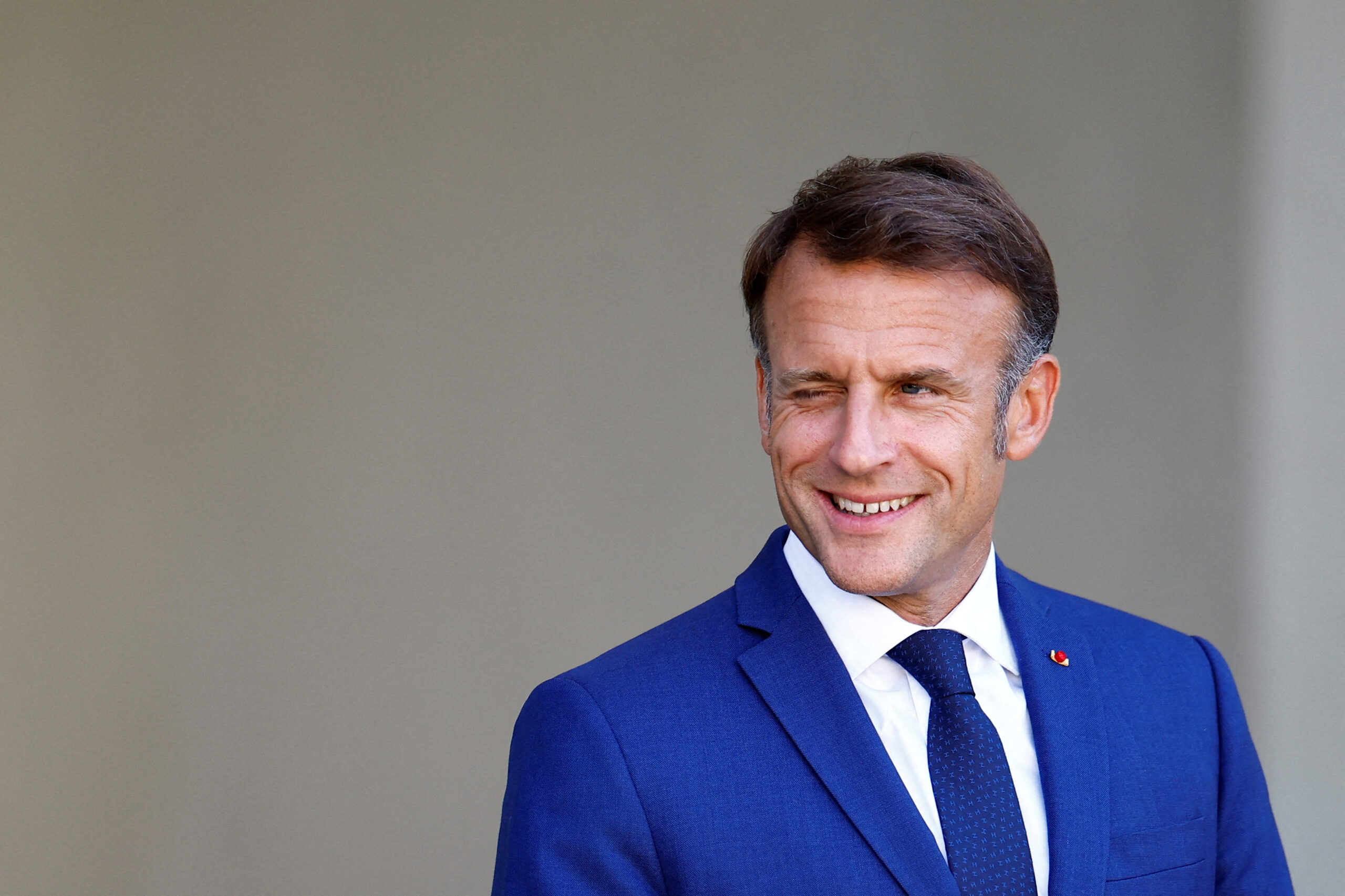Macron Is Making a Joke of France’s Electorate
French democracy is in uncharted waters.
by Cole Stangler
28 August 2024

It’s unclear how long a government led by France’s coalition of leftwing parties, the New Popular Front (NFP), would last. The alliance has only a modest plurality of seats in the national assembly and faces intense opposition from both Macronists and the far right. Would it succumb to an immediate motion of no-confidence, or could it begin the delicate process of attempting to govern a deeply divided country?
If France were a healthier democracy, we would already have the answer: as the candidate for prime minister backed by the coalition that received the most votes in the country’s snap elections, 37-year-old civil servant Lucie Castets would already have been asked by the president to form a new government. Maybe rivals would quickly topple such a government – maybe not. Maybe the alliance would self-implode when forced to compromise – maybe not. Either way, citizens deserve to find out.
Instead, Emmanuel Macron has refused to even entertain the possibility of the NFP in power, citing a threat to “institutional stability” and calling for “consultations” to continue – a vaguely-worded proposal that means little. In the meantime, state power remains in the hands of an outgoing Macron-allied government that has already spent more days in power (43 and counting) than any other such caretaker government in the history of the Fourth or Fifth Republic. Alarm bells are starting to sound – and for good reason: Macron’s refusal to give the NFP a chance at governing makes a mockery of an election in which millions of voters opted to turn the page on his unpopular agenda, and plunges French democracy into uncharted waters.
So far, Macron’s dilly-dallying has benefited from something of a blindspot in the constitution, a document crafted in 1958 and inspired by Charles de Gaulle’s vision of a powerful head of state. While the French president is charged with naming a prime minister – and that prime minister is charged with leading a government accountable to parliament – the constitution gives little indication as to what the process of actually appointing a prime minister should look like. In the three previous cases of cohabitation, presidents simply chose prime ministers backed by obvious legislative majorities. Critics of the NFP do have a point when they stress the left’s lack of an absolute majority: in the 66-year history of the Fifth Republic, the national assembly has never been as divided as it is today.
Still, picking a prime minister backed by the most powerful coalition makes for an obvious first step. And that first step is now long overdue: Macron’s call for an “Olympic truce” was generously heeded, but closing ceremonies at the Stade de France wrapped up more than two weeks ago. Under the constitution, Macron also has an obligation to ensure “respect for the constitution” and the “proper functioning” of “public authorities” through his role of “arbitration”. In other words, he doesn’t get to do whatever he wants. In a 2015 interview, Macron famously lamented France’s struggle to grapple with the “absence of the figure of the king” — but the country does remain a republic after all, with legislators and elections.
While it has gone unsaid in official statements, Macron’s reluctance to name a leftwing prime minister also stems from a concern shared by his ideological allies – and one deeply familiar to progressives across Europe: from an economic perspective, it’s simply too dangerous to let the left govern. It’s hard to imagine France would be in the situation it faces now if the coalition with the most seats in the national assembly had pledged to continue Macron’s economic agenda, vowing to carefully control public spending while ruling out tax hikes.
An important deadline only adds to Macronist anxieties: this fall, the French government must approve a new annual budget, and the stakes are higher than usual. After the government overshot deficit projections last year, S&P downgraded France’s credit rating and the European Union formally placed the country in an “excessive deficit procedure”, nudging authorities to better control public borrowing and spending. In the neoliberal mind, the NFP isn’t up for the task. Even if the coalition would face limited room for manoeuvring in the national assembly, its platform calling for tax increases, a raise in the minimum wage and the repeal of Macron’s retirement reform is seen as risky and unserious.
Financial markets may not love all of what the NFP is proposing. Big business leaders certainly don’t want a leftwing government, and they’re increasingly vocal about it. But of course, it doesn’t really matter what they think. That’s not how democracy works.
A deeply unpopular president called for new elections and the majority of French people cast ballots against his electoral alliance. Now, Macron has to deal with the consequences. And if there are compromises to be made, France’s democratic traditions offer the best way forward: let the newly-elected national assembly figure them out.
Cole Stangler is a journalist based in Marseille and the author of Paris is Not Dead: Surviving Gentrification in the City of Light.


